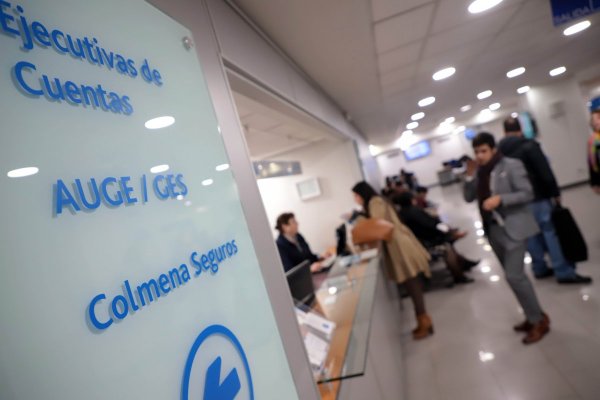The bill to deal with the crisis of the isapres would be almost ready.
It only remains to refine details and socialize it with parliamentarians. However, the original idea of the government to strengthen Fonasa and add certain characteristics of private insurance, would not be enough to face the magnitude of the problem.
According to sources familiar with the matter, the first project to strengthen Fonasa and make it viable for all those who leave the isapre system consists of creating a new section in public insurance -which today goes between letters A and D- and also provide it with complementary insurance for care in private facilities.
How would that supplemental insurance work? First, Fonasa would tender said insurance to private companies, thereby obtaining a better price and coverage for the entire group. What has been worked on between the Ministry of Health and Fonasa is that said complementary insurance is separated into five sections.
The lower band, and therefore with a lower cost, would be for cheaper and more massive health centers or located in communes with large pockets of lower and middle class.
Thus, the sections would go up until reaching the most expensive and which would give access to the most exclusive health centers.
But since that would not be to help the isapres, but on the contrary -it would weaken them- the Government would present a second bill, or a Short Law, to legally adjust the maximum prices of the health plans according to the new factor tables they must use, according to last year’s Supreme Court ruling.
In addition, this increase in prices protected by the law would make it possible to compensate the returns of excess charges that the isapres must make, and that the Supreme Court ordered.
According to what they say in the industry, the contracting of health insurance policies has been on the rise in recent times. According to figures from the Commission for the Financial Market, if in December 2020 there were 1,118,404 current individual and group health insurance policies, as of September last year said figure reached 3,609,889.
In addition, several insurers are reinforcing their sales teams precisely with the former executives of the isapres disconnected by the crisis.
This is also related to the drop in Isapre clients. According to figures from the Superintendence of Health As of December 2022, the total number of beneficiaries (holders plus charges) reached 3,076,622, 173,375 fewer than there were in December 2021which would be explained by the financial situation of families, but also by the crisis that private insurers are going through, and that many people are choosing to emigrate to Fonasa and take out additional insurance for major expenses or care in certain private clinics.


